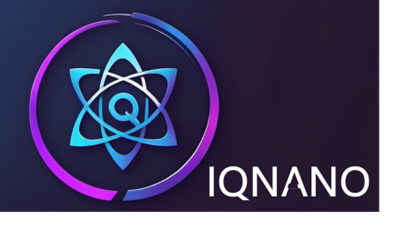INCT IQNano
INCT IQNano - National Institute of Science and Technology for Quantum and Nano Infrastructures for Convergent Applications
The INCT IQNano is at the forefront of developing innovative technological platforms, integrating nanotechnology, artificial intelligence, quantum cryptography, Raman spectroscopy, and microwave microscopy. The project aims to strengthen Brazil's scientific infrastructure, promoting cutting-edge research and technological solutions for challenges in various strategic areas.

Among the main objectives, the following stand out:
- The development of quantum cryptography systems to ensure secure communications;
- The creation of photonic chips for optical sensors and advanced computing;
- The implementation of embedded artificial intelligence algorithms, applied to both science and industry.
With an interdisciplinary approach, the INCT promotes the integration between theoretical and experimental research, resulting in technological innovation and knowledge transfer to the productive sector. In addition to training new researchers, the institute also invests in the development of functional prototypes, including optical systems for machine learning and new biomedical imaging techniques. The expected impact involves advances in information security, material characterization, and artificial intelligence applied to embedded devices.
Current Development of EDA at LITCOMP-AI
LITCOMP-AI leads the implementation of an Electronic Design Automation (EDA) infrastructure aimed at developing specialized integrated circuits. This effort seeks to consolidate the necessary infrastructure to design high-complexity CMOS chips, covering three main fronts:
- Optical CMOS → Development of image sensors for applications in astronomy, cosmology, and biomedical imaging.
- Photonic CMOS → Implementation of integrated circuits for optical computing, interferometry, and quantum communication.
- CMOS MEMS → Development of microelectromechanical sensors and superconducting devices, applicable to scientific instrumentation and quantum technologies.
LITCOMP-AI has already made progress in setting up EDA tools (Cadence Virtuoso, Spectre, LVS, DRC) and negotiating process design kits (PDK - Process Design Kit) for CMOS chip fabrication at XFab. The laboratory's computational infrastructure includes high-performance servers optimized for complex simulations of photonic and microelectronic circuits.
Beyond research and development, the laboratory seeks strategic collaborations to expand the impact of the developed chips, especially in the areas of scientific instrumentation, quantum sensors, spectroscopy, and neuromorphic computing.
This effort positions CBPF at the forefront of specialized hardware design, opening new possibilities for applied research and technological innovation in Brazil.